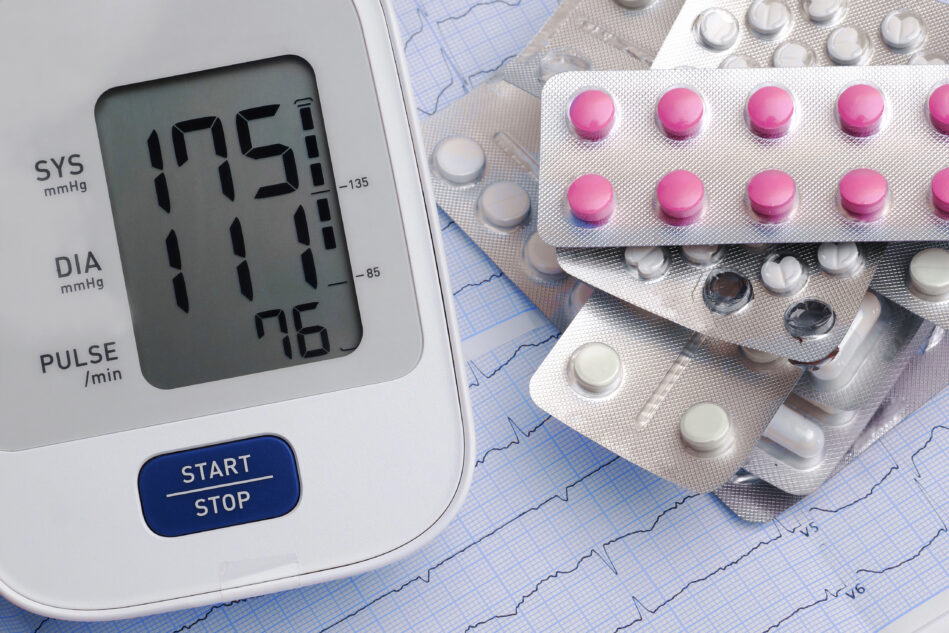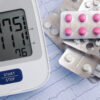A group of important new article and studies about blood pressure meds and steroids, most could save your life. But the one I like best is last, optimism will allow you to live longer – yay happiness!
Be well.
Blood Pressure Meds
A new study shows a very large benefit to taking blood pressure meds at night instead of in the morning. 20,000 people followed for six years found those taking their blood pressure medicine right before bed were 34% less likely to die of a heart attack, nearly half as likely to die of a stroke. The nighttime pill takers were 45% less likely to die from any cause than the morning pill takers.
Bedtime hypertension treatment improves cardiovascular risk reduction: the Hygia Chronotherapy Trial – European Heart Journal Oct 23,2019
ACE Inhibitors and Women
Surprise! {Sarcasm}
Once again, when women’s response to drugs are tested, it’s found that women need half the amount of meds than men. Using more doesn’t increase any benefits for women and only increases potential side effects and strain on organs.
And may I point out that in a study TO STUDY WOMEN AS COMPARED TO MEN, three times as many men were in the study as women.
Identifying optimal doses of heart failure medications in
men compared with women: a prospective, observational,
cohort study – Lancet, Aug 22, 2019
Cipro and Damaged Heart Valves
A new study reveals a connection between FQ drugs (fluoroquinoline) like ciprofloxacin (Cipro) and levofloxacin, and damaged heart valves. The same study showed that amoxicillin, a different type of antibiotic, did not have the same elevated risk. The Food and Drug Administration advised doctors to prescribe such drugs only when “no alternative treatment options” are available.
Journal of the American College of Cardiology, September 10, 2019 (Not available for public)
Commonly used antibiotics may lead to heart problems – ScienceDaily
Steroids and IBD
The risk of using steroids include: bone loss, which can develop with even short-term and low-dose corticosteroid therapy; metabolic complications such as glucose intolerance and diabetes mellitus; increased intraocular pressure and glaucoma; and potentially lethal infections. To minimize the risk of toxicity, corticosteroids are increasingly recommended for short-term use only at the lowest effective dose
About 28% of IBD patients had been prescribed steroids in the past 12 months. About half of those patients were identified as experiencing excess or dependency on steroids. Excess was avoidable in about half the cases.
The takeaway? If you are prescribed steroids for IBD — Crohn’s disease (CD), ulcerative colitis (UC), and IBD unspecified (IBD-U) — if you and your healthcare provider determine that steroids are necessary for your IBD care, be certain to use them for the shortest period of time.
Study: Too Many IBD Patients Treated Inappropriately – MedPage Today, Oct 19, 2019
Assessment of steroid use as a key performance indicator in inflammatory bowel disease—analysis of data from 2385 UK patients – Alimentary Pharmacology and Therapeutics, Oct 8, 2019
Optimism and Heart Health
Science concludes, “Don’t worry, be happy” is the path to a longer life. A meta-analysis (a study of studies) evaluated 15 studies that included nearly 230,000 people and found that men, women, old, rich and poor all had better cardiovascular health (fewer heart attacks, strokes and angina) and lived longer if they were optimistic. Study participants were followed for a mean time of more than 13 years.
Even better, the article notes multiple other studies show that optimists do better than pessimists on respiratory disease, cognitive dysfunction, infection and various cancers. To be fair, optimism is also associated with choosing to eat more healthfully than pessimists, exercising and choosing not to smoke.
Concerned you’re a pessimist? The study authors note that cognitive behavioral therapy can turn you from a pessimist into a person with a bright outlook. The authors also suggest that future studies should try to identify the bio-behavioral mechanisms that cause this and evaluate the best interventions that promote optimism over pessimism.
Association of Optimism With Cardiovascular Events and All-Cause Mortality – JAMA, Cardiology, September 27, 2019






